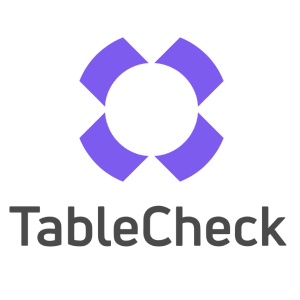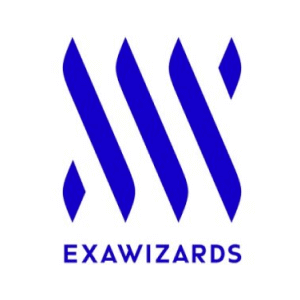Updated November 17, 2025
Scala in Japan - Language Guide
Scala is a programming language developed by Martin Odersky in 2003. It’s renowned for its expressive syntax, strong static typing, and seamless integration of other functional and object-oriented programming languages.
Although not as widespread as some other programming languages in Japan, Scala’s adoption has been rising among developers and tech firms who value the language’s ability to handle complex, scalable systems with ease.
If you’re looking to get a Scala job in Japan or are considering learning the language to pursue a career here, I’ll give you all the details. In this post, I’ll talk about the career prospects of Scala developers in Japan and what an average salary can look like.
I’ll also give you tips on finding Scala jobs and how you can become a part of the Scala community in Japan.
Here’s our guide to Scala in Japan, complete with all the basics you need to know and more.
Is Scala Programming Language Popular in Japan?
Let’s start by saying that Scala isn’t exactly breaking records regarding its popularity in Japan. Worry not, though, as the language is far from being obsolete, and the career prospects are still very much out there.
To be more clear, I’m speaking according to our programming languages popularity list that we’ve come up with.
Here at Japan Dev, we’ve collected data on companies and job listings over the past years, and ranked the languages in terms of how often they show up on job listings featured on our job board.
According to our findings, Scala is the 14th most popular programming language in Japan. Here’s our full list to see which languages rank the highest:
Popularity Rank |
Programming Language |
Median Salary |
#1 |
Python |
¥9.8 million |
#2 |
Java |
¥8.6 million |
#3 |
Go |
¥10.3 million |
#4 |
Javascript |
¥8.6 million |
#5 |
C++ |
¥9.3 million |
#6 |
Typescript |
¥9 million |
#7 |
Kotlin |
¥9.1 million |
#8 |
Ruby |
¥9.2 million |
#9 |
PHP |
¥8.7 million |
#10 |
Swift |
¥8.7 million |
#11 |
React |
¥9 million |
#12 |
Node.js |
¥8.5 million |
#13 |
R |
¥10.1 million |
#14 |
Scala |
¥10.86 million |
#15 |
Vue.js |
¥8.7 million |
#16 |
Objective-C |
¥7.2 million |
#17 |
Rust |
¥8.5 million |
So, while Scala isn’t one of the “top” languages in Japan, it’s still a fairly popular language that’s far from becoming obsolete.
For one, some startups have recently started using Scala more commonly in their day-to-day operations. You can read more on this below.
Besides, the data we’ve collected from companies has also allowed us to pinpoint the median annual salary for each programming language, and we concluded that learning Scala is by no means a bad investment. Let’s discuss it.

Scala Salaries in Japan: How Well Does Scala Jobs Pay?
As you may have seen on our list above, Scala is far from a bad investment, and Scala developers can get paid very well in Japan. It just may take a little longer to find a job you like. Here’s what I mean.
Our rankings are based solely on each language’s popularity among the job listings out there. This simply means that Scala doesn’t show up on job listings as frequently as more common languages such as Go, Java, or Python.
So, if you’re a Scala developer, you just might need to look for a little longer to find something that absolutely suits you.
And it’ll be worth it! According to our data, Scala developers earn an annual median salary of a whopping ¥10.86 million in Japan. This is the highest median salary on our list, making Scala the best-paying programming language out of all languages on our job board.
So, Scala developers can let out a sigh of relief knowing that their career prospects are safe here in Japan. Still, if you want to explore all your options or want a broader look at developer salaries in Japan, I have a separate post with updates for 2025.
The Use Cases: How Is Scala Used in Japan?
Scala is far from being an “unpopular” language. It’s just that its uses can be considered more niche compared to the more versatile ones out there.
Perhaps the most common use case of Scala is server-side development. The language is used extensively for the backend development of web and mobile applications by companies operating in various industries (more on this later).
That said, the language is also very useful for data processing and transformations. Many companies nowadays rely on Scala’s capabilities to process data efficiently.
What’s more, some companies out there also prefer Scala due to its interoperability. The language is highly interoperable with Java’s JVM, which makes it all the more useful to companies.

Top Companies Using Scala in Japan
With such an impressive average salary, Scala proves that it’s a pretty valuable language to know in Japan. Here are a few noteworthy tech companies that use Scala in their day-to-day operations to provide exceptional products and services.
Mercari: Japan’s largest customer-to-customer marketplace app, Mercari is also Japan’s first unicorn startup. The company hires Scala engineers to provide its users with the buttery-smooth shopping/selling experience they’ve been offering since day one.
Zeals: This commerce pioneer uses AI-powered chat solutions to transform customer engagement across platforms. Zeals employs Scala in its data engineering infrastructure to process massive conversation and event data, improve AI agents, and deliver personalized experiences.
Treasure Data: As an enterprise customer data platform trusted by Fortune 500 companies, Treasure Data processes trillions of data rows daily. The company relies heavily on Scala, from Presto query engine development to building internal tools and pipelines powering customer insights.
CADDi: Driving digital transformation in manufacturing, CADDi's AI-powered data platform helps companies optimize supply chains and improve efficiencies. The company values engineers with Scala experience (particularly those familiar with functional programming paradigms) to build robust backend systems that analyze manufacturing data and enable smarter decision-making across global operations.
SmartNews: Another unicorn company from Japan, SmartNews provides a machine learning-powered digital news service. The company is a known user of Scala, which helps them deliver their news service to users efficiently.
Freee: The company’s cloud-based accounting platform allows users to check their finances at a moment’s notice on all their devices. Freee is another Scala user, benefiting from the seamless integration possibilities the language offers.
The companies I shared are a few notable examples, but they certainly aren’t all of them. If you want to discover even more companies that use Scala and want to find a good company to work at, here are our tips.
Tips On Finding Scala Jobs in Japan: How to Get Started
For starters, our Scala jobs page is your best bet to land a job at a good company that pays well. By a good company, I mean one that has modern employment practices, treats and pays their employees fairly, and offers better benefits.
These are all the qualities we look for in companies when selecting them to feature on our job board, so you’ll know that each company you find there is actually one you want to work for.
While finding a job you like may take a while, you may also benefit from joining Japan’s Scala community to increase your chances of finding new opportunities and networking with other Scala developers.
My guide to Japan’s best tech conferences can be a good starting point, but I also have separate posts for Tokyo, Osaka, Kyoto, and Fukuoka communities you can check out.
In addition to all of this, you can also make yourself known in the Scala development space by contributing to open-source projects. Doing so can help you get the experience you may not be able to get elsewhere if you’re more of a beginner, and if you’re a pro, it’s a great way to show off your skills!
Be sure to check out my guide to Japan’s open-source community after this to explore your options.

Final Word on Scala in Japan
It may not be the most popular programming language in Japan, according to our list, but there’s no denying that Scala is a useful language to know here.
For one, our data says that it’s the best-paying programming language on our job board. Let’s go over what we discovered once more:
Our data has shown that Scala is the 14th most popular programming language on our job board
According to our findings, Scala developers in Japan earn an annual median salary of ¥10.86 million
We found that Scala is mostly used in server-side development for web and mobile applications and data transformation and processing
All of this makes Scala a pretty useful language to learn, even if it may take a little longer to find your dream job than some of the more popular languages out there.
This may be it for Scala, but if you want to get a general overview of what programming is like in Japan, read my guide on the topic. Also, if you’re considering learning Scala to get a job in Japan, I recommend checking out my coding bootcamps in Tokyo post right after this.
Get Job Alerts
Sign up for our newsletter to get hand-picked tech jobs in Japan – straight to your inbox.







